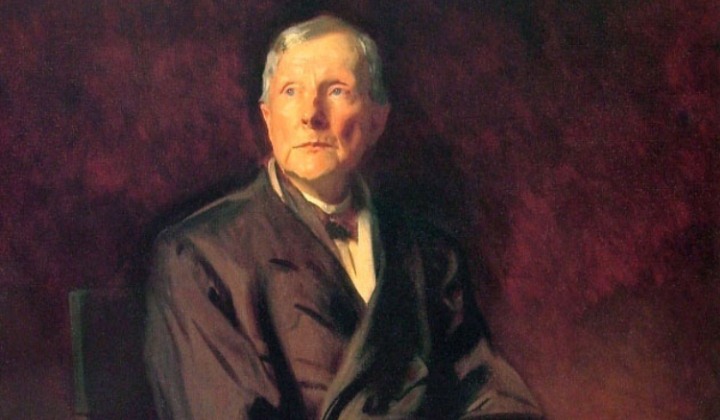
Sixth in a series on why U.S. Universities are great
Only religious organizations benefit from American philanthropy more than universities. The causes for this are manifold, but the effect is that universities have become excellent because of philanthropy. Generosity ceases when quality falters. Philanthropy is both barometer and instigator of excellence. Conversely, state support will continue at some level long after effectiveness wanes thereby sustaining weakness.
Philanthropy has hit record levels this year, growing by nearly six percent. Any university without a clear fundraising strategy to support students in their pursuit of an education, faculty in pursuit of teaching excellence and new ideas, and campuses in pursuit of community service, should shut its doors. Religious support accounts for 32% of all giving. Education receives 15% of citizen-driven largesse, and gifts from foundations are increasing dramatically in support of excellence in higher education.
U.S. universities are strong because they attract philanthropic funding. People vote with their feet according to research at the Lilly Family School of Philanthropy Indiana University–Purdue University Indianapolis. It is possible to measure certain aspects of institutional quality based solely on charitable support of the university mission. A lack of mission clarity results in few private gifts. High wealth households allocate 85% of their giving to education. The state trough is running dry, yet some institutional leaders appear to eschew private giving. By mid-century, $42 trillion of philanthropic wealth will transfer to future generations according the National Philanthropic Trust. The strategy of too many educational leaders is complaining about what the state does not do for “us.”
The rich get richer. The 20 most successful fundraising universities capture nearly one-third of all gift resources. The list includes the best universities in the nation. This should be an inducement for all campuses to seek philanthropic support, but a Huffington Post editorial suggests the questionable motives of some donors and recipients creates weariness on the part of some educational leaders. That is shortsighted.
Moreover, to the naysayers who fear only science, engineering, technical, and practically applicable disciplines and initiatives receive support, they are flatly wrong. The greatest support for general humanities and liberal education in the U.S. comes from private sources, not government. It is not coincidence, which aligns the love of humanity (philanthropía), and concern for the public good (humanitas), but history and Holy Writ.
The United Kingdom, home to some of the world’s greatest universities and indeed historical parent of what higher education can be, is bested in philanthropic support by the United States. It is not surprising that, according to all reputable counts, the preponderance of world-leading universities are housed in the U.S. and every one of them possess sharp fundraising acumen. The Telegraph of the U.K. accounts for the positive relationship between philanthropy and universities in the U.S. as “a culture of giving.” However, the past does not guarantee the future, and diligence in cause and effect is required.
It is not just about money either, but about a durable vision of the power of universities. The Hispanic Outlook in Higher Education Magazine observes that Latino students will benefit from philanthropy. Further, the growing numbers of Latino students and graduates enjoins this commitment to create a “culture of giving.” The relationship between excellence, resources and access is undeniable.
The Nation, the U.S.’s oldest progressive weekly, gets it wrong right up front with this tagline “Relying on the rich to make college affordable for poor students reinforces the system that created those inequalities in the first place.” They should read The Hispanic Outlook in Higher Education Magazine for a decidedly different but valuable perspective. It is reminiscent of the “widow’s mite.” Many giving a little may mean more than a few giving much. Additionally, seemingly modest repetitive actions create a culture of sustained commitment, although rare large gifts make great sound bites and pride. According to the experts, two bits spent on fundraising yield six bits in gifts.
Philanthropy is not uniquely American in any of its dimensions, but in higher education it is clearly significant and unequaled. American university prominence, in public and private settings, is attributable in no small way to the largesse of donors. According to Karl Zinsmeister, writing in the Philanthropy Round Table, private giving strengthens a free society, the essence of excellence in higher education, satisfies deep human needs, improves capitalism and entrepreneurism, strengthens democracy, and diminishes reliance on government.
Private giving is the proof of excellence, and at times quality’s genesis, in U.S. higher education. No effective university exists without philanthropy — no matter the size, reputation, or mission.
Photo Credit: philanthropyroundtable.org



